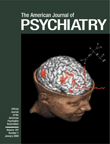The start of the third millennium presents great promises and expectations, in contrast to the start of the second millennium, which was preoccupied with fears of the ending of the world. Today, we seem to anticipate the beginning of a Golden Age in every sphere, where longstanding problems will be solved, such as the origin of the universe and effortless treatment for disruptive diseases, including enigmatic psychiatric disorders like schizophrenia and depression. This book reflects such optimistic and enthusiastic expectations.
The editors state in the preface, quite correctly, that great progress has been made since the 1950s, when monoamine oxidase inhibitors and imipramine were introduced, in terms of refinements in clinical action and tolerability for the new compounds and in understanding their mechanisms of action, which has indirectly helped to clarify the psychobiological bases of depressive disorders. The book has 19 chapters, which deal with both basic psychobiological and therapeutic aspects of depressive disorders and includes contributions from European and American basic and clinical scientists.
Among the topics treated, particular interest lies in the evidence provided on the integration of the different monoaminergic systems in the central nervous system (Tassin et al.); the noradrenergic electrophysiological patterns (Svensson et al.) and serotonergic 5-HT1B autoreceptors in relation to the activity of selective serotonin reuptake inhibitors (Briley and Moret); modulation of the 5-HT system by a 5-HT moduline (Fillion et al.); postreceptor events in relation to homeostasis serotonergic/noradrenergic interaction (Rossby and Sulser); synaptic homeostasis as a cause for depression and target for antidepressant action (Grahame-Smith); and the different models of depression (Leonard).
The clinical-pharmacological aspects include some epidemiological data on depressive disorders (Angst); the advantages and limitations of newer drugs (Benkert et al.); the link between impulse control, alcoholism, and the serotonergic system (Linnoila et al.); antidepressants and sexual dysfunction (Baldwin and Birtwistle); adjunctive treatments for speeding up the onset of action of antidepressants (Blier et al.); and also nonpharmacological approaches such as light therapy and sleep deprivation (Kasper and Neumeister).
Particular interest derives from the discussion of specific aspects of treatment, such as resistant depression (Von Knorring and Bingefors) and the synergistic effects of combining serotonergic and noradrenergic compounds (Nelson); suicide prevention with the use of antidepressants (Mequies et al.); and the right choice of an antidepressant in relation to main depressive subgroups, severity, or bipolarity (Montgomery).
All aspects are dealt with carefully by acknowledged researchers in the field who are well able to review data and suggest future directions for both basic and clinical pharmacological research as a tool for reaching a better understanding of the pathophysiology of multifaceted depressive disorders. However, some less appealing, but more critical, topics are omitted, such as the unknown risk of late-occurring side effects during long-term treatment with the newer antidepressants (cardiotoxicity, neuroendocrine immunological dysfunction, withdrawal symptoms, etc.); the gap between the phase III study and clinical practice (the need for naturalistic study); the possibility of iatrogenicity in patients with bipolar disorder, adjunctive therapy, and the risk of polytherapy for interaction with other psychotropics and nonpsychotropic compounds, which is often barely effective or totally irrational.
This is a commendable book, replete with updated information directed not only to people working in the field but also to general practitioners. It is very well focused on current theories regarding the understanding and treatment of depressive disorders and is full of promises for the next millennium, while overlooking some problems of today and the near future. Paradoxically, there are many problematic unresolved aspects of antidepressant therapy today—we lack answers to many questions, both in the psychobiological and clinical fields, despite the undoubted relevant achievements of the last few years.
At the start of the new millennium, we need perhaps to be more critical, concentrating more on the limitations to our knowledge than on overoptimistic looks to the future. Possibly, increasing knowledge will in some way lead us to a recognition of how far we truly are from solving the problems posed by depression.

